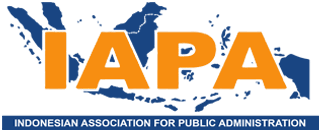ISLAMIC POPULISM AND INDONESIAN DEMOCRACY MOVEMENT: REFLECTIONS FROM THE 2019 PRESIDENTIAL ELECTION
DOI:
https://doi.org/10.30997/jsh.v15i1.13102Keywords:
Democracy, 2019 Presidential Election, Islamic PopulismAbstract
This research reveals that the reflection of the 2019 presidential election, the Islamic populism movement, which is only considered a threat (destructive) to Indonesian democracy, is an inappropriate view; Islamic populism must also be seen as a constructive political movement, as a form of demand for justice and welfare of the majority population. This attitude is part of the control of the democratic system, which is based on considerations of sociological and historical aspects that the majority of the Indonesian population adheres to Islam. Responding to Islamic populism in Indonesia must be done by fully understanding the meaning of democracy and the values in Pancasila and Bhinneka Tunggal Ika. Because ideally every political movement that provides a critical attitude must be interpreted as part of democratic dynamics.
References
Allen, E. (2013). Labour and Social Trends in Indonesia 2013: Reinforcing the role of decent work in equitable growth. ILO.
Arief, R., Prakoso, L. Y., & Risman, H. (2021). Understanding National Identity to Create Love and Proud of Being a Part of the Indonesian Nation. Jurnal Inovasi Penelitian, 1(11), 2549–2556.
Arifin, S. (2019). Islam, Populisme dan Masa Depan Demokrasi di Indonesia. Jurnal MAARIF, 14(1), 9–28. https://doi.org/DOI: 10.47651/mrf.v14i1.46
Basya, M. H. (2019). Populisme Islam, Krisis Modal Sosial dan Tantangan Terhadap Demokrasi: Refleksi Pemilu 2019. Jurnal MAARIF, 14(1), 43–59.
Calhoun, C. (Ed.). (1994). Social Theory and the Politics of Identity. Blackwell Publishers.
Castells, M. (2010). The Power of Identity: The Information Age: Economy, Society, and Culture. Wiley-Blackwell.
Denzin, N. K., & Lincoln, Y. S. (Ed.). (2017). The SAGE Handbook of Qualitative Research (Fifth). Sage Publications, Inc.
Djani, L. (2017). Persenyawaan Politik Identitas dan Populisme: Tawaran Kerangka Analisis. In Prisma: Jurnal Pemikiran Sosial Ekonomi, Edisi Bangkitnya Populisme dan Krisis Demokrasi , Vol. 36, No. 3 (hal. 10–18). LP3ES.
Djani, L., Törnquist, O., Tanjung, O., & Tjandra, S. (2017). Dilemmas of Populist Transactionalism: What are the Prospects Now for Popular Politics in Indonesia? PolGov Publishing.
Fossati, D. (2019). The Resurgence of Ideology in Indonesia: Political Islam, Aliran and Political Behaviour. Journal of Current Southeast Asian Affairs, 38(2), 119–148.
Fukuoka, Y., & Djani, L. (2016). Revisiting the Rise of Jokowi: The Triumph of Reformasi or an Oligarchic Adaptation of Post-Clientelist Initiatives? South East Asia Research, 24(2), 204–221.
Guild, J. (2019). The Creeping Hand of the State in Post-Reformasi Indonesia: Is Democracy in Irreversible Decline? In EXPLORATIONS: A Graduate Student Journal of Southeast Asian Studies, Vol. 15 (hal. 5–21).
Hadiz, V. R. (2016). Islamic Populism in Indonesia and the Middle East. Cambridge University Press.
Hadiz, V. R. (2018). Populisme Islam: di Indonesia dan Timur Tengah. LP3ES.
Hai, V. S. (2019). Transnationalism and Multi-dimensional Flow of Remittance in Cambodia. In EXPLORATIONS: A Graduate Student Journal of Southeast Asian Studies, Vol. 15 (hal. 23–42).
Hanan, D. (2020). Identity Politics in the 2019 Indonesian General Elections: Its Significance and Limitation. Jurnal Wacana Politik, 5(1), 15–25.
Hardiman, F. B. (2017). Kebangkitan Populisme Kanan dalam Negara Hukum Indonesia. In Prisma: Jurnal Pemikiran Sosial Ekonomi, Edisi Bangkitnya Populisme dan Krisis Demokrasi, Vol. 36, No. 3 (hal. 3–9). LP3ES.
Jati, W. R. (2017). Trajektori Populisme Islam di Kalangan Kelas Menengah Muslim Indonesia. In Prisma: Jurnal Pemikiran Sosial Ekonomi, Edisi Bangkitnya Populisme dan Krisis Demokrasi , Vol. 36, No. 3. LP3ES.
Jayanto, D. D. (2019). Mempertimbangkan Fenomena Populisme Islam di Indonesia dalam Perspektif Pertarungan Diskursif: Kontestasi Wacana Politik Antara Gerakan Nasional Pengawal Fatwa Ulama (GNPF-Ulama) dan Nahdlatul Ulama (NU). Jurnal Filsafat, Vol. 29(1), 1–25.
Jayasuriya, K. (2006). Statecraft, Welfare and the Politics of Inclusion. Palgrave Macmillan.
Kurniawan, I. D., & AP, H. A. (2021). Perkembangan Politik Populisme di Indonesia. Jurnal Inovasi Penelitian, Vol. 2(4), 1065–1072.
Kusumastuti, A., & Khoiron, A. M. (2019). Metode Penelitian Kualitatif. Lembaga Pendidikan Sukarno Pressindo (LPSP).
Margiansyah, D. (2019). Populisme di Indonesia Kontemporer: Transformasi Persaingan Populisme dan Konsekuensinya dalam Dinamika Kontestasi Politik Menjelang Pemilu 2019. Jurnal Penelitian Politik, 16(1), 47–68.
Mayrudin, Y., & Akbar, M. C. (2019). Identity Politics Within Indonesian Islamic Parties: Study of PKB and PKS. Advances in Social Science, Education and Humanities Research, Volume 367: Proceedings of the International Conference of Democratisation in Southeast Asia (ICDeSA), 283–288.
Mudhoffir, A. M., Yasih, D. W. P., & Hakim, L. (2017). Populisme Islam dan Tantangan Demokrasi di Indonesia. In Prisma: Jurnal Pemikiran Sosial Ekonomi, Edisi Bangkitnya Populisme dan Krisis Demokrasi , Vol. 36, No. 32 (hal. 48–59). LP3ES.
Nurhasim, M. (Ed.). (2014). Partisipasi Pemilih Pada Pemilu 2014: Studi Penjajakan. Pusat Penelitian Politik Lembaga Ilmu Pengetahuan Indonesia & Komisi Pemilihan Umum.
Putnam, R. D. (2002). Democracies in Flux: The Evolution of Social Capital in Contemporary Society. Oxford University Press.
Ronaldo, R., & Darmaiza. (2021). Politisasi Agama dan Politik Kebencian pada Pemilu Presiden Indonesia 2019. Indonesian Journal of Religion and Society, Vol. 3(1), 34–48. https://doi.org/DOI: 10.36256/ijrs.v3i1.150
Rubaidi. (2020). Radikalisme Islam, Populisme, NU dan Masa Depan Demokrasi Indonesia di Era Post-Truth. Lingkaran.
Sabarudin, D. (2021). Political Communication Based on Identity Politics and Social Networking Media in the Periode 2012-2017 DKI Jakarta Governor Election. Jurnal Komunikasi dan Bisnis, 9(2), 111–125.
Sihidi, I. T., Roziqin, A., & Suhermanto, D. F. (2020). Pertarungan Populisme Islam dalam Pemilihan Presiden 2019. JIIP: Jurnal Ilmiah Ilmu Pemerintahan, 5(2), 174–189.
Statistik, B. P. (2019). Statistik Politik 2019. Badan Pusat Statistik.
Vail, J., Wheelock, J., & Hill, M. (Ed.). (1999). Insecure Times: Living With Insecurity in Contemporary Society. Routledge: Taylor & Francis Group.
Downloads
Published
How to Cite
Issue
Section
License
Copyright (c) 2024 Jurnal Sosial Humaniora

This work is licensed under a Creative Commons Attribution-ShareAlike 4.0 International License.
Authors submitting manuscripts must understand and agree to copyright the manuscript of the article was transferred to OJS Djuanda University. All rights reserved. The copyright release statement for the Journal of Social Humanities is set out in the Agreement Transfer of Copyright. This work is licensed under Creative Commons Attribution-ShareAlike (CC BY-SA) version 4.0 where Author and Readers can copy and redistribute material in any media or format , as well as mixing, modifying and building materials for any purpose, but they must provide appropriate credit (citing articles or content), provides a link to the license, and indicates when changes have been made. If you mix, modify, or develop, the materials you have to distribute your contributions are under the same license as the originals.
















